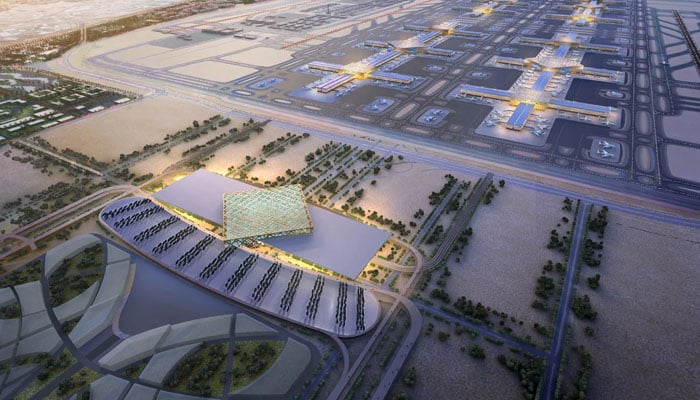World's biggest airport is being constructed in Dubai desert — but why?
Dubai's future world's biggest airport is expected to accommodate 160 million passengers per year
A little more than 10 years ago, in October 2013, a Wizz Air A320 arriving from Budapest made headlines by becoming the first commercial passenger flight ever to touch down at Al Maktoum International Airport, also known as Dubai World Central (DWC).
This brand new “greenfield” airport some 20 miles southwest of downtown Dubai was designed to become, in a not-so-distant future, the world’s largest and busiest, according to CNN.
The vision was – and still is – for a futuristic mega-hub, ensuring that the emirate’s role as a major node of the global economy doesn’t run into capacity problems anytime soon.
After Al Maktoum International is completed, Dubai Airports, the airport organisation that oversees both Dubai International (DXB) and the new airport, claims that it will be able to accommodate more than 160 million passengers annually in addition to 12 million tonnes of cargo.
To put that into perspective, in 2022, Hartsfield–Jackson Atlanta International, the busiest airport in the world, handled almost 63 million less passengers than that of Dubai International, which handled nearly 100 million more.
Remember that DXB serves as Dubai's primary international gateway and is currently the busiest airport in the world outside of the United States.
Nevertheless, 13 years after it initially opened for cargo operations and a decade and a pandemic after its first passenger flight, Dubai's newest airport is still very much a work in progress.
DWC has established itself as a hub for aviation maintenance, repair, and overhaul, or "MRO" as it is known in the business.
Along with handling executive jets and some charter flights, it also serves a number of air cargo carriers, such as Emirates Cargo, the freight division of the flag carrier of the United Arab Emirates.
However, the only scheduled passenger services available are those offered by a small number of low-cost airlines, most of which fly to Eastern Europe, Russia, and Central Asia.
-
'Harry Potter' star Rupert Grint shares where he stands politically
-
Drama outside Nancy Guthrie's home unfolds described as 'circus'
-
Marco Rubio sends message of unity to Europe
-
Hilarie Burton reveals Valentine's Day plans with Jeffrey Dean Morgan
-
Jacob Elordi, Margot Robbie on 'devastating' scene in 'Wuthering Heights'
-
China to implement zero tariffs on African imports in major trade shift
-
Jack Thorne explains hidden similarities between 'Lord of the Flies' and 'Adolescence'
-
Elon Musk vs Reid Hoffman: Epstein files fuel public spat between tech billionaires












